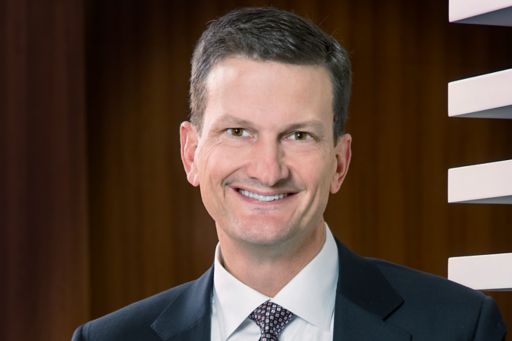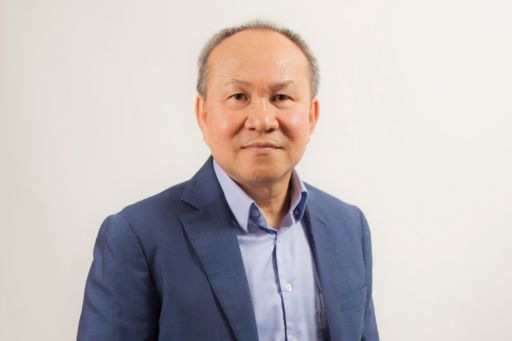CEOs rewrite the rulebook in pursuit of growth
CEOs rewrite the rulebook in pursuit of growth
Two-thirds of CEOs say that agility is the new currency of business and that if they don’t adapt, their business will become irrelevant
May 30, 2019 – CEOs are faced with a stark choice. In the face of unparalleled environmental, economic and technological change, they are looking to grow their businesses by creating the organizational agility to disrupt existing business models and challenge long-held market orthodoxies.
According to the fifth KPMG International Global CEO Outlook, just over half of CEOs are confident they will succeed but are realistic, with 53 percent projecting cautious three-year growth of up to 2 percent (down from 55 percent in 2018). As with 2018, they are also maintaining a positive three-year growth outlook for the global economy, although this has slightly fallen from 67 to 62 percent over the last 12 months. This confidence is also shown by their commitment to hire, with 36 percent of CEOs projecting to add more than six percent to their workforce in the next three years.
“A successful CEO now needs to be an agile CEO,” said Bill Thomas, Global Chairman, KPMG International. “Succeeding in a world of volatility and uncertainty requires different leadership skills, particularly in large, multi-national organizations. It’s no longer a question of simply defending your position and using scale to maintain competitive advantage. Today, CEOs need to be comfortable disrupting their business models by forging new strategic partnerships, considering alternate M&A strategies and increasing the skills of their workforces.”

Bill Thomas, Global Chairman, KPMG International
Climate change driving a multi-risk operating environment
CEOs named climate change the biggest risk to their organization’s growth, the first time in five years it was rated a top concern compared to technological, territorial, cyber and operational risks. But with only a small margin between each of them, it paints a picture of a complex and ever shifting risk landscape.
The innovation disconnect
A majority of CEOs (84 percent) believe a ‘fail-fast’ culture is required in today’s marketplace, in which lessons from failures are learned quickly, yet only 56 percent say that kind of culture is in place in their organization. Eight out of ten CEOs (84 percent) are therefore looking to change the makeup of their leadership teams to disrupt the status quo.
Cyber security to innovation
Cyber continues to be high on the CEO agenda, despite falling from the second highest risk last year to fourth this year. In 2019, a larger group of CEOs (69 percent vs 55 percent in 2018) are prioritizing the creation of a robust cyber security strategy, and most (71 percent) view information security as a key factor in their broader innovation strategy.
Acquiring expertise through M&A
For many CEOs, M&A presents the best opportunity to upgrade digital capabilities with pace. A proactive M&A strategy is on the agenda for 84 percent of CEOs who have a moderate-to-high M&A appetite for the next three years. Driving this appetite is the ability of M&A to transform a business model faster than organic growth.
“In Thailand, the M&A landscape is also going strong due to a combination of the ASEAN Economic Community, infrastructure investment for 5G technology, and the emergence of Thailand as a stronger regional and global player,” says Winid Silamongkol, Chief Executive Officer, KPMG in Thailand. “From KPMG in Thailand’s survey done on M&A within Thailand, 88% of the survey respondents expected to make at least one more acquisition in Thailand within the next five years, with 65% expecting to do at least two, and almost a quarter expecting to do more than six. This is a good opportunity for companies in various industry to transform and expand their business through M&A.”

Winid Silamongkol, CEO, KPMG in Thailand
Capital investment
When asked to prioritize between buying new technology or developing their workforce to improve their organization’s resilience, CEOs favored technology two to one (68 vs 32 percent).
AI experts take note
Artificial intelligence (AI) is on the minds of CEOs, yet only 16 percent have implemented AI and automation programs. A further 31 percent are still at the pilot stage, while 53 percent admit to undertaking a limited AI implementation. Yet 65 percent of CEOs believe the inclusion of AI and automation will create more jobs than it eliminates.
Says Thomas, “All together, this year’s survey is telling us that we’ve entered a new era of leadership. Agility comes from balancing a CEO’s instinct with having confidence in what the data is telling you. Strategic decisions require data that has bias removed. It’s no longer enough to seek “big” data, instead CEOs must use technology to uncover quality data. Only through this will they create the organizational resilience to drive growth.”
To view additional information about the study please visit www.kpmg.com/CEOoutlook. You can also follow the conversation @KPMG on Twitter and Instagram using #CEOoutlook.
Thai version: ซีอีโอ คิดนอกกรอบเพื่อการเติบโตขององค์กร
For press requests, please contact:
Ploi Phayakvichien
KPMG in Thailand
ploi@kpmg.co.th
Notes to Editors:
About KPMG’s CEO Outlook
Now in its fifth year, the KPMG CEO Outlook provides an in-depth three-year outlook from thousands of global executives on enterprise and economic growth. Each year, the report builds upon answers from previous surveys to help ensure a consistent year-over-year view of the global economy. It also includes new and changing questions to capture CEOs’ outlook on trending topics in the market.
The 2019 survey covers 1,300 CEOs in 11 key markets (Australia, China, France, Germany, India, Italy, Japan, Netherlands, Spain, UK and US) and 11 key industry sectors (asset management, automotive, banking, consumer and retail, energy, infrastructure, insurance, life sciences, manufacturing, technology and telecoms).
A third of the companies surveyed have more than USD10B in annual revenue, with no responses from companies under USD500M. The survey was conducted between 8 January and 20 February 2019. NOTE: some figures may not add up to 100 percent due to rounding.
KPMG is a global network of professional services firms providing Audit, Tax and Advisory services. We operate in 153 countries and have 207,000 people working in member firms around the world. The independent member firms of the KPMG network are affiliated with KPMG International Cooperative ("KPMG International"), a Swiss entity. Each KPMG firm is a legally distinct and separate entity and describes itself as such.
KPMG in Thailand, offering audit, tax, and advisory services, is a member firm of the KPMG network of independent firms affiliated with KPMG International Cooperative.
Some or all of the services described herein may not be permissible for KPMG audit clients and their affiliates or related entities.
© 2026 KPMG Phoomchai Holdings Co., Ltd., a Thai limited liability company and a member firm of the KPMG global organization of independent member firms affiliated with KPMG International Limited, a private English company limited by guarantee. All rights reserved.
For more detail about the structure of the KPMG global organization please visit https://kpmg.com/governance.
